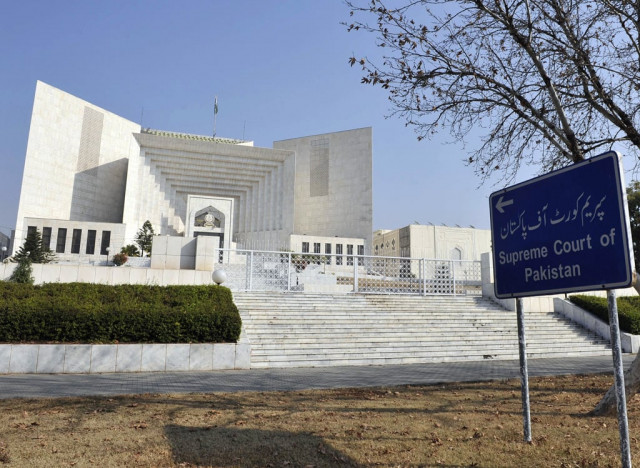Appointment of judges: Rights group advises rethink on JCP rules
HRCP says SC may prescribe objective criteria for appointment of judges and ensure process is fair and transparent

HRCP says SC may prescribe objective criteria for appointment of judges and ensure process is fair and transparent. PHOTO: AFP
The country’s leading human rights watchdog has appealed for a Supreme Court review of regulations drawn up for the appointment of superior court judges.
The Human Rights Commission of Pakistan (HRCP) – an independent body – called upon the apex court to “review the Judicial Commission of Pakistan’s (JCP) regulations, prescribe objective criteria for the appointment of judges and ensure that the process is fair and transparent”. The appeal was made on Saturday when the rights group released its annual report for the year 2014.
“The principles laid down by the judiciary for exercise of discretionary authority by the executive must first be applied to the administrative authority of judges,” the commission suggests.
It also pointed to the need for structuring the wide, unbridled discretion vested in the office of the chief justice, adding that a starting point can be the introduction of modern automated court and case management systems across all courts.
“A new Judicial Policy that does not pay lip service to the problem of pendency but look at its perennial causes and finds sustainable solutions should be formulated and implemented. Such exercise by National Judicial Policy Making Committee must be accompanied by an exercise undertaken by the Law Commission to identify lacunae in procedural and substantive laws that cause delay in adjudication of cases on the one hand and miscarriage justice on the other”
The HRCP stated that it is time the judiciary indulged in introspection as the 21st constitutional amendment is less of a solution to Pakistan’s problem of terror and more a vote of no confidence in the judiciary.
“The judges who have been discharging their duties fairly, diligently and with integrity would have a right to be angry with the government for projecting the judiciary as a major cause for proliferation of terror in the country. Such anger must, however, be directed towards initiating judicial reform,” says the report.
The commission has also observed that there is no objective test for the exercise of Article 184 (3) powers, adding that former chief justice Iftikhar Muhammad Chaudhry had exercised the suo motu powers in a manner that attracted much criticism.
The report says that, post Chaudhry, it was hoped that the apex court might constitute a larger bench to clearly lay out the legal basis for exercise of Article 184 (3) powers and also provide appeal under Article 184 (3) of the Constitution, as demanded by the superior bars.
HRCP lamented, however, that with a second chief justice in office since former CJP Iftikhar’s retirement, this has unfortunately still not happened.
The report does admit however, that the number of suo motu has declined and signs of internal restraint are visible.
“Post Chaudhry, the Supreme Court is trying to undo some of the damage done to our constitutional jurisprudence in the past few years since the restoration of judges,” it further states.
The report further raises questions regarding the Supreme Court Judicial Council’s refusal for taking up complaints against the superior court judges. At the close of year 2014, more than 1.793 million cases are pending in the country.
The report also says that judicial accountability remains a taboo as, according to Transparency International of Pakistan, the judiciary in Pakistan is perceived to be amongst one of the more public institutions.
Published in The Express Tribune, April 19th, 2015.


1725254039-0/Untitled-design-(24)1725254039-0-208x130.webp)
















COMMENTS
Comments are moderated and generally will be posted if they are on-topic and not abusive.
For more information, please see our Comments FAQ